Ecommerce Automations by Role
Pick the ecommerce automation solution tailored to your job
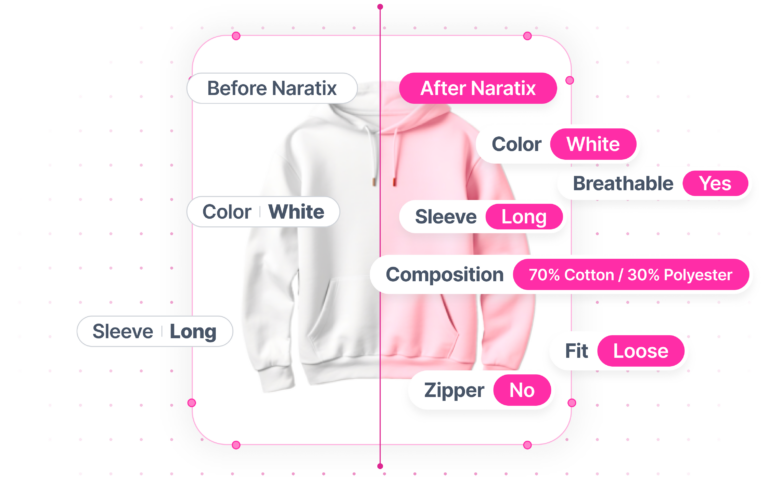
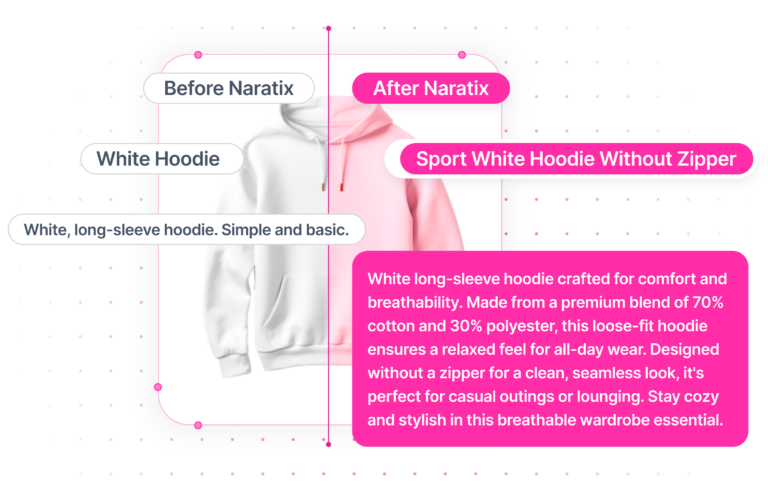
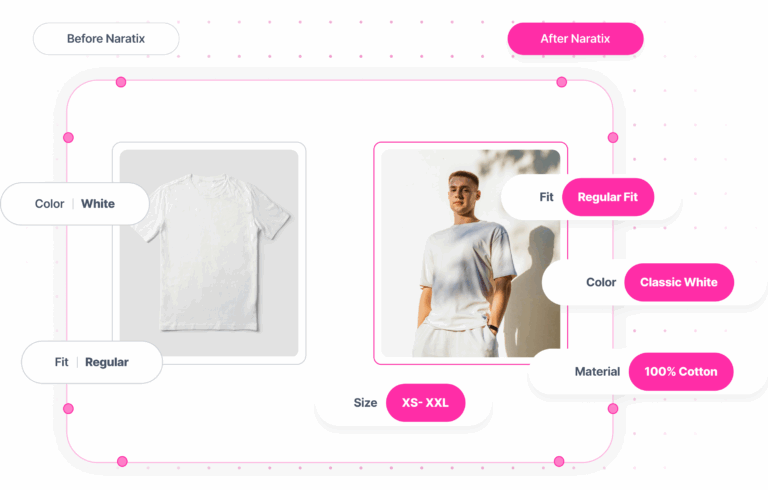
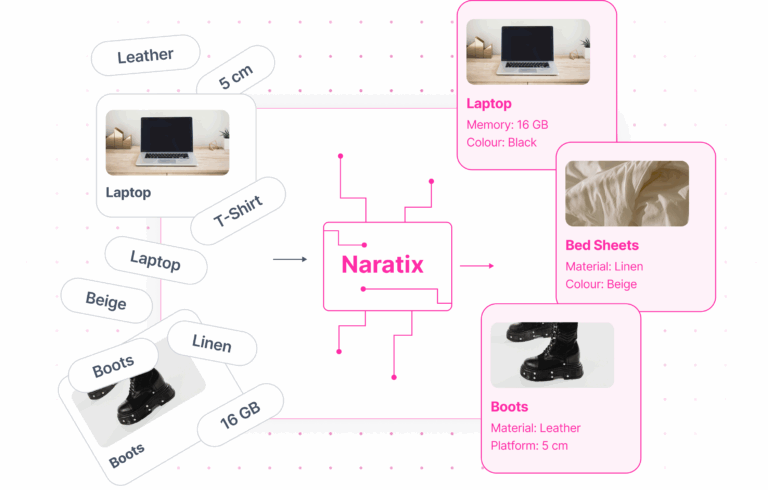
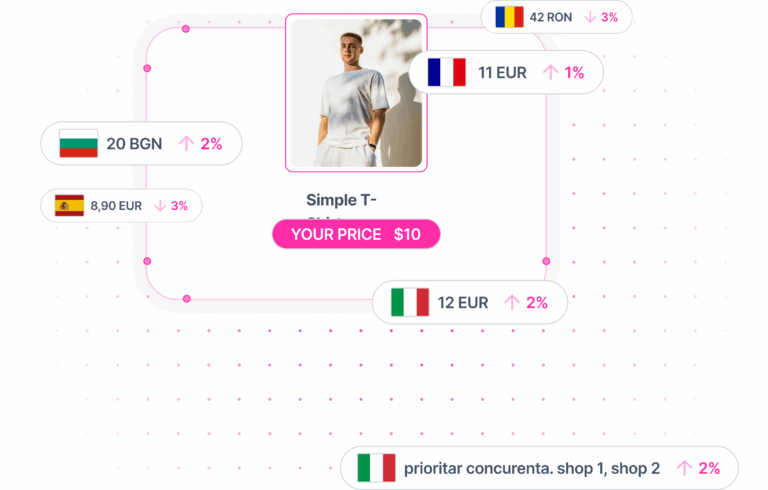
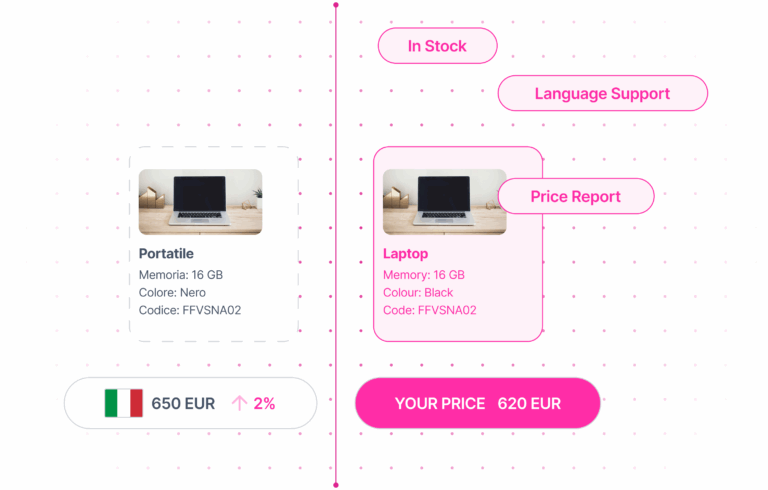
Automation solutions designed for every ecommerce role
Choose the card that matches your day‑to‑day responsibilities and request a no‑risk sample
Business
Grow assortment and profits by cleaning data, protecting margins, and launching products without extra headcount
IT
Streamline feeds and deliver audit‑ready catalogs via secure APIs without new servers, patches, or migrations
Ecommerce Department
Launch product pages with enriched specs, brand copy, and optimised images in hours, not days
Operations
Validate, enrich, and sync stock data automatically so launches stay on schedule without weekend overtime
Finance
Catch pricing errors, protect margins, and feed cost data to ERP and BI dashboards instantly
SEO
Boost organic traffic with keyword‑rich attributes, unique copy, images, and structured metadata at scale
Why match ecommerce automation to each role for better results?
Because finance, IT, marketing, and ops measure success differently. A role‑specific automation solution surfaces exactly the metrics, controls, and workflows each team needs, turning catalog cleanup into faster launches, stronger margins, and lower support costs instead of generic software projects.
What are the benefits of ecommerce automation by role
Top advantages of role‑aligned automation
Role‑Centric Insight Dashboards
See only the KPIs that matter for your function, no spreadsheet hunting ever
Instant Data Wins
Clean attributes and images appear within hours, unlocking faster launches and promotions immediately
Audit‑Ready Catalog Records
Immutable logs satisfy finance, compliance, and IT teams without extra manual reporting burden
Elastic Cloud Processing
Scale overnight for million‑SKU spikes, then idle to zero, lowering infrastructure spend dramatically
Fewer Support Tickets
Accurate specs cut “item not described” complaints, freeing agents for high‑value conversations daily
Margin‑Safe Actions
Real‑time price and cost alerts guide decisions that protect profit without manual spreadsheets
Ecommerce Automation by Role
How is a role‑specific ecommerce automation solution better than one generic catalog tool?
Generic platforms force every department to dig for the data they need. Our role‑specific ecommerce automation solutions surface business KPIs for commercial leads, API health for IT, price variance for finance, and SEO fields for marketers, all in their own dashboards. That focus speeds decision‑making, improves user adoption, and drives higher ROI because each team sees immediate, job‑relevant wins instead of wading through features they don’t use.
Can multiple departments collaborate without duplicating work or creating data silos?
Yes. All role‑focused solutions operate on a single, central product‑information lake. Business, SEO, and finance teams view the same enriched record, just through lenses tuned to their responsibilities. When the operations team approves new dimensions, SEO instantly inherits structured data, and finance gains fresh landed‑cost figures, eliminating version conflicts and endless hand‑offs.
Our IT resources are limited, how heavy is onboarding?
Setup rarely exceeds one sprint. You supply a CSV, XLSX, or existing API endpoint; pre‑built connectors map fields automatically. From there, each department toggles its own dashboard modules, no re‑platforming, no downtime, and no rip‑and‑replace risk for your ecommerce stack.
If we enable finance or SEO modules later, will we pay for separate platforms?
No. The platform is modular: enable the finance validation or SEO enrichment solution with a single token. All historical enrichment, taxonomy mapping, and imagery stay intact, so expanding capabilities adds value, not cost duplication.
How quickly will each department see measurable key performance indicators?
Most teams record tangible improvements inside the first month, commercial sees conversion lift, operations notes ticket reduction, finance logs fewer price errors, and SEO tracks incremental organic clicks. Dashboards translate these wins into dollars saved or earned, making ROI crystal clear for quarterly reviews.
Is sensitive pricing, supplier, and customer data secure when accessed by several roles?
Absolutely. Data moves via TLS 1.3, rests under AES‑256 encryption, and is siloed with role‑based JSON Web Tokens that expire hourly. Field‑level audit trails meet ISO 27001 and GDPR standards, and optional IP allow‑lists or single‑tenant hosting add extra layers for enterprises with stringent security policies.